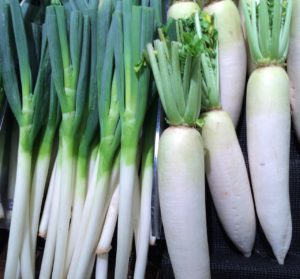[Photo by Thought Catalog on Unsplash.]
In this blog post we’ll look at vocabulary and expressions that you can use to talk about friends and acquaintances in English.
She’s a Good Friend of Mine
Let’s start with phrases you can use to introduce your friends and describe how close you are.
- Mary’s my best friend / my bestie. We can tell each other anything, and we’re like sisters.
A best friend (or a bestie) is your closest friend, someone who you trust completely and can tell anything to.
- Sarah is my friend. Sarah is a friend of mine.
You’ll hear both my friend and a friend of mine. They mean almost the same thing, but my friend can sound closer than a friend of mine. - Sarah is a good/dear/close/old friend.
A good friend is someone who you have a strong friendship with. A dear friend is someone whose friendship is very important to you. A close friend is a friend who you trust very much, who you share personal things with. An old friend isn’t necessarily an old person; it’s a friend who you’ve known for a long time. - Laura and I have become close. We’ve gotten to know each other well.
To become close with a person means to become friendlier and friendlier with. When you get to know someone, you become closer and more familiar with that person. At the beginning of a friendship, you may say we’re just getting to know each other. That means that the friendship is new. - Bill’s not a close friend, but I see him from time to time.
If you see someone from time to time, that means that you’re not extremely close and don’t spend a lot of time together often. - Sam’s not really a friend. He’s more of an acquaintance. We don’t know each other very well.
An acquaintance is someone you know, but you aren’t very close to. You may be friendly and polite, you may see each other from time to time, but you wouldn’t share very personal information, for example. The verb is to become acquainted with: I’ve become acquainted with my new neighbor, and he seems really nice. - We’re not really friends, we know each other to say hi.
If you only know someone to say hi, that means that you’re just acquaintances, you’re not friends. You smile and say hello, and maybe make small talk, but that’s it.
How Do You Two Know Each Other?
If you’d like to ask how people met, you can ask:
- How do you (two) know each other?
- Where do you know each other from?
- Where did you meet?
- How do you guys/y’all know each other?
English doesn’t have a plural form of you, so you is usually used whether you’re talking to one person or more than one. But in conversational English, you do hear plural forms of you: you guys, you all, y’all, and so on. (Even though guys means men, you guys can be used to speak to women, it’s a gender-neutral expression.)
Some possible answers are:
- I know him from work. We work at the same place. We used to work together.
- I know her from school/college. We go to the same school. We went to school together.
- We’ve known each other since we were kids. We grew up together. We’re from the same town.
Remember that know is one of those verbs that you usually don’t use in the progressive. So you would say we’ve known each other instead of *we have been knowing each other. - We’ve known each other for years.
- We met at college/at a party/at a bar/at a coffee shop.
- We met through friends. We have mutual friends.
- We’re neighbors. We live next to each other. We live on the same block.
How Often Do You Get Together?
If you want to know how frequently two people see each other, you can ask:
- How often do you see each other?
- How often do you get together?
- How much time do you spend together?
- Do you hang out a lot?
To hang out is a casual way of saying spend time with someone. It means simply to be together, not necessarily to something special
If someone asks you, you could say:
- We see each other every week/weekend.
- We get together for dinner/drinks every now and then.
You can specify that you get together for something (as long as it’s a noun). The expression every now and then means infrequently, not regularly. - We get together to play cards/to see movies.
Use to after get together before a verb. - We hang out a lot. We hang out every week or so.
Every week or so means approximately every week, not exactly every week. - We grab a drink or a bite every so often.
To grab a drink means to have a drink, and to grab a bite means to get food together. Grab here means take or get, and it’s an informal expression. Every so often is like every now and then: not frequently or regularly, sometimes.
Learn English with the Language Garage!
If you’re interested in ESL/EFL lessons, please check out our English courses. We have private lessons, lessons for you and a friend or colleague, or small groups. Or see our other posts on English grammar, vocabulary, and more.





